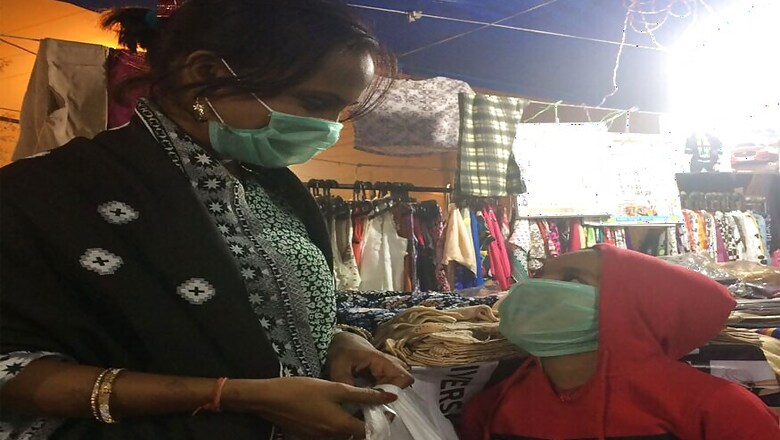
views
The city of New Delhi has taught five-year-old Dvij Tripathi a lesson he must not forget. To put a mask around his face before he ventures outdoors. It was a lesson learnt though an itchy throat, burning eyes and a persistent cough.
What caused it to get so bad?
The Delhi Pollution Crisis - Explained
As the buck continues to be passed back and forth between the Centre and the Delhi government and occasionally to neighbouring states as well, let's take a look at what caused the capital to be enveloped in such a thick layer of smog.
# Anti-cyclone like conditions over Delhi since Diwali till November 7th caused wind speeds to become negligible.
# Low wind speeds ensured that pollutants that emanate from Delhi remained in the city.
# Additionally, pollutants that were coming in from outside the city - for instance, pollutants from crop burning in neighbouring states like Punjab and Haryana - were also stuck in Delhi's air.
# With no exit, even pollutants from Diwali crackers continued to hover over Delhi.
# Only after the wind speeds began picking up since the afternoon of the 7th have the skies relatively cleared up and smog thinned out.
Do clearer skies mean that our air is safe to breathe now? Can we let go off the masks?
NO. It is true that the pollution levels have dipped. It is also true that Delhi's most polluted locality, Anand Vihar, where the amount of particulate pollutants in the air had gone up to more than 16 times the permissible limit, has seen pollution levels fall by half.
Wait, before that makes you cheerful, do the math. The air in Anand Vihar is still EIGHT times more polluted than what is considered safe! The rest of Delhi too ranges between the fivefold and eightfold mark.
Favourable weather conditions in Delhi no longer mean that the air is safe to breathe. Take those masks off at your own risk.
SHOULD EVERYONE WEAR A MASK THEN?
Polash Mukherjee, an environmental analyst at the Centre for Science and Environment (CSE) warns, "Please consult a physician before donning a face mask. For some people who already have respiratory illnesses and trouble breathing, the masks may cause more harm than good."
And while Khan Market's Vogmasks store has made brisk business in selling up to 8 lakh rupees worth of respirators in a day, not everyone can afford the 2,200 rupees price tag.
While commuting across a heavily polluted Anand Vihar, 65-year-old Smaran Singh laments, "All I have to protect myself from this air is a kerchief around my face. The fancy masks are too expensive."
And while not all N-95 masks are as costly as the ones sold in Delhi’s upscale Khan Market, Smaran Singh’s point is not one we can discount easily. Ipshita Adhyapak, an environmental science student at TERI University, implores the government to step in.
“The government must make protective masks accessible and affordable to one and all. They are the need of the hour and not just for a select few, but for all of us.“
THE WORST SUFFERERS
55-year-old Prem Singh is a New Delhi Municipal Corporation worker. His job requires him to clean our streets and pavements. For the past several days, he has been wearing a mask to work. It is one that the corporation has provided. Unfortunately, it is a surgical mask meant to be worn for not more than a day. Prem Singh has been wearing it for a week. Unaware that donning that mask for more than a day worsens his condition - as the pollutants in the air get trapped in the mask itself.
From autowallahs to daily labourers, the ones who need protective gear the most are often the ones without it. Due to a lack of either awareness or access. They cannot choose to stay off the road for it is there that they earn a living. And amidst all the noise on pollution in television studios and social media, we must not forget them - the worst sufferers.
WILL WE CHANGE?
This November, the government woke up late and hence could implement only reactionary measures. Next year, Diwali shall come again. And so will the crackers. And then the crop burning. And diesel cars shall continue to plonk along congested roads. They shall all unite in belching pollutants in the air we breathe. And we shall all complain yet again.
Or will it be any different? Can it be any different?




















Comments
0 comment